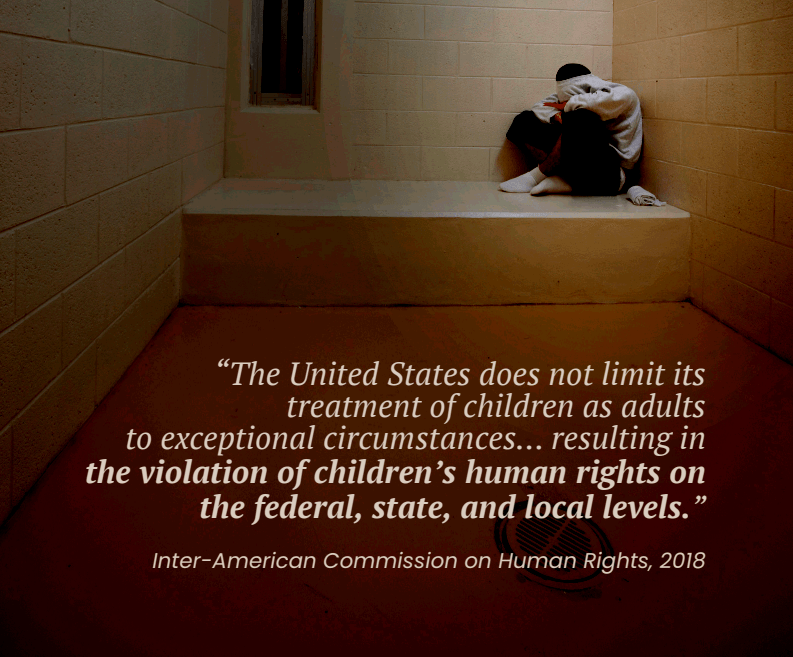Report from Human Rights For Kids - Grading State Juvenile Justice Systems
Group estimates there are more than 35,000 people currently incarcerated in U.S. prisons for crimes they committed as children

Human Rights for Kids, a non-profit dedicated to the promotion and protection of the human rights of children, created a report detailing how children are treated in the justice system in every US state. The report is intended to to educate the public on what reforms need to take place in order to better align our juvenile justice laws with human rights principles.
Each year, thousands of children are unfairly prosecuted, sentenced and incarcerated in the adult criminal justice system. They often receive longer sentences, fewer opportunities for education and growth, and are at an increased risk for physical and sexual violence. The vast majority of these children have experienced high levels of early childhood trauma and adverse childhood experiences. Those experience are often the reason children end up in the criminal justice system in the first place. The practice of ignoring child status in the criminal justice system results in children being condemned to a life of continued abuse, hardship, poor health, lengthy incarceration and even early death.
The State Ratings Report examines 12 categories of law that are vital to establishing a basic legal framework to protect the human rights of kids in the criminal justice system. These categories cover four main areas:
- Entrance into the juvenile and criminal justice systems
- The treatment of children as adults
- Conditions of confinement
- Release and social reintegration of child offenders
Of note, a specific category includes the application of, or lack thereof, a felony murder rule. States receive credit for this category if the felony murder rule is statutorily eliminated to children less than 18 years of age. In cases where a child does not kill or intend to kill another person during the commission of a felony, they should receive a sentence based on their overall culpability, also taking into account the child’s trauma history and potential for rehabilitation. States receive credit for this category if they do not have the felony murder rule, have banned the felony murder rule for children, or have created an affirmative defense for persons who do not kill or intend to kill during the commission of the felony. States may receive partial credit if they place strict limits on the applicability of the affirmative defense or allow children who did not kill or intend to kill to still be prosecuted pursuant to the rule under other circumstances.
According to the report, the state with the best rating (Tier One) on the 10-point scale, and only state to appear in Tier one, is California, scoring a 9.5. Meanwhile,15 states appeared in Tier Four, and five states (Alabama, Georgia, Mississippi, Tennessee and Wyoming) scored 2 out of 10 points, representing the lowest scores given.
You can read and download the report "2022 National State Ratings Report" at the Human Rights for Kids website.










